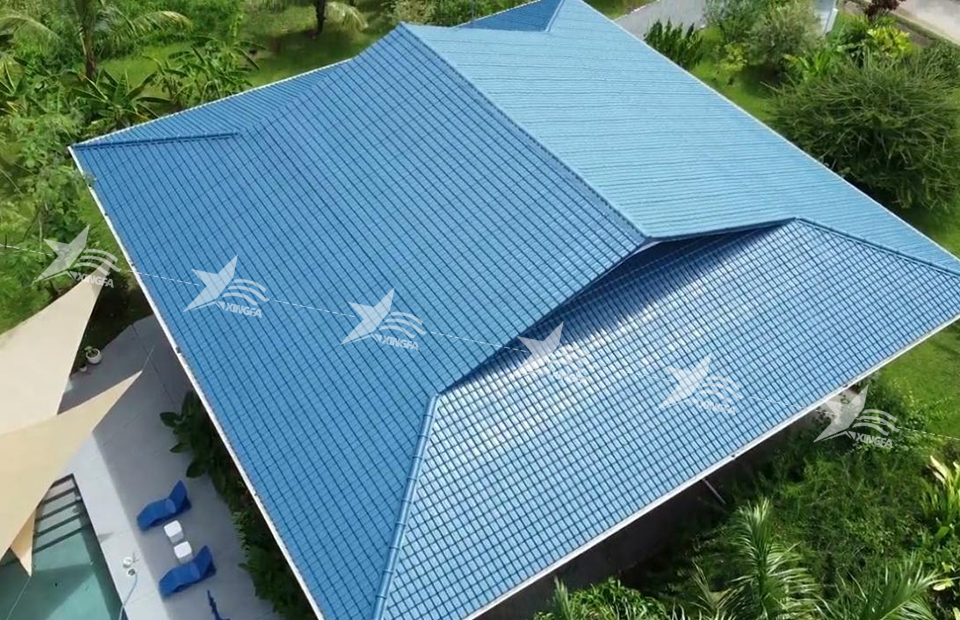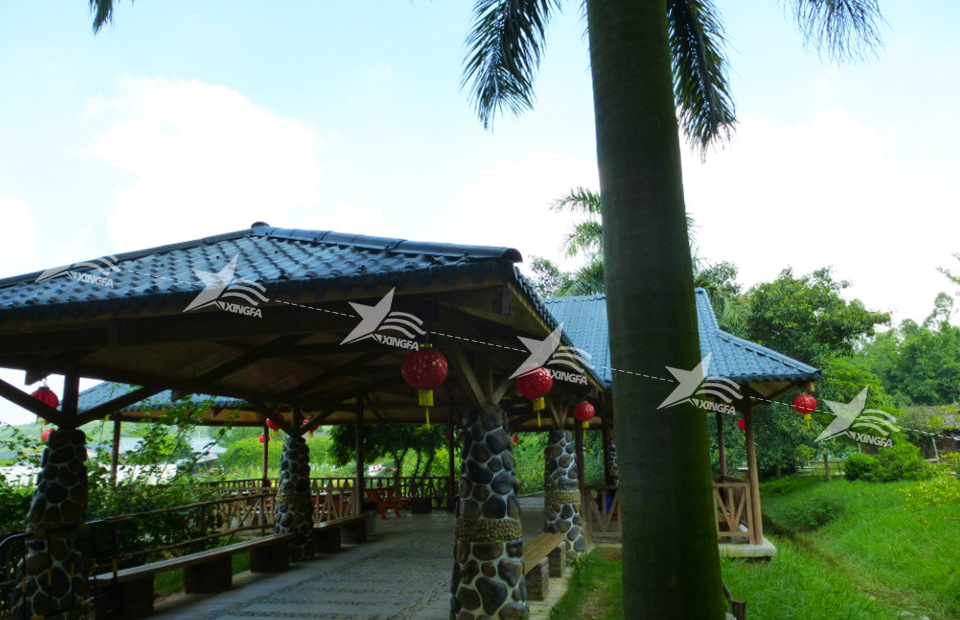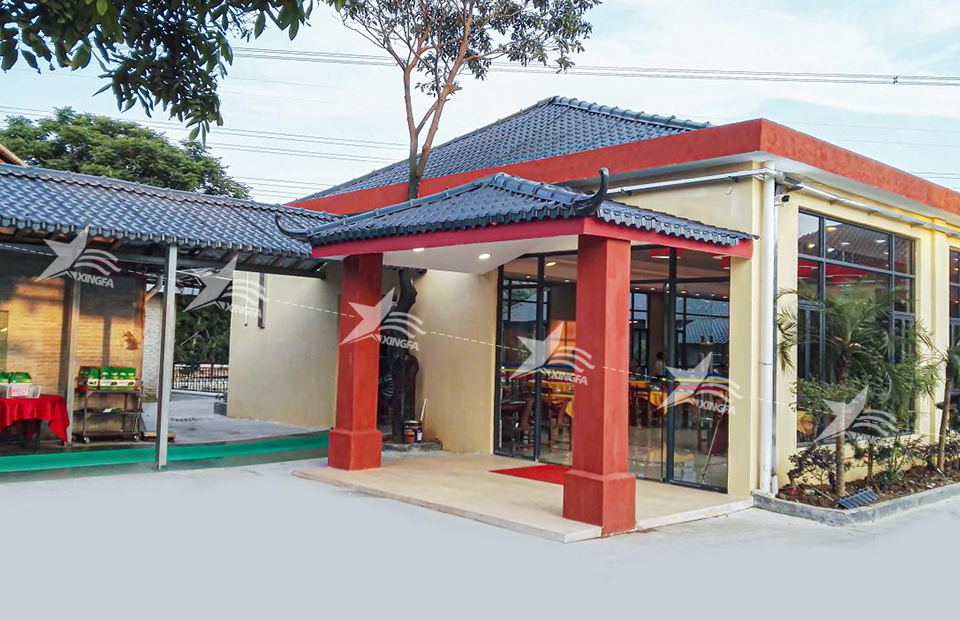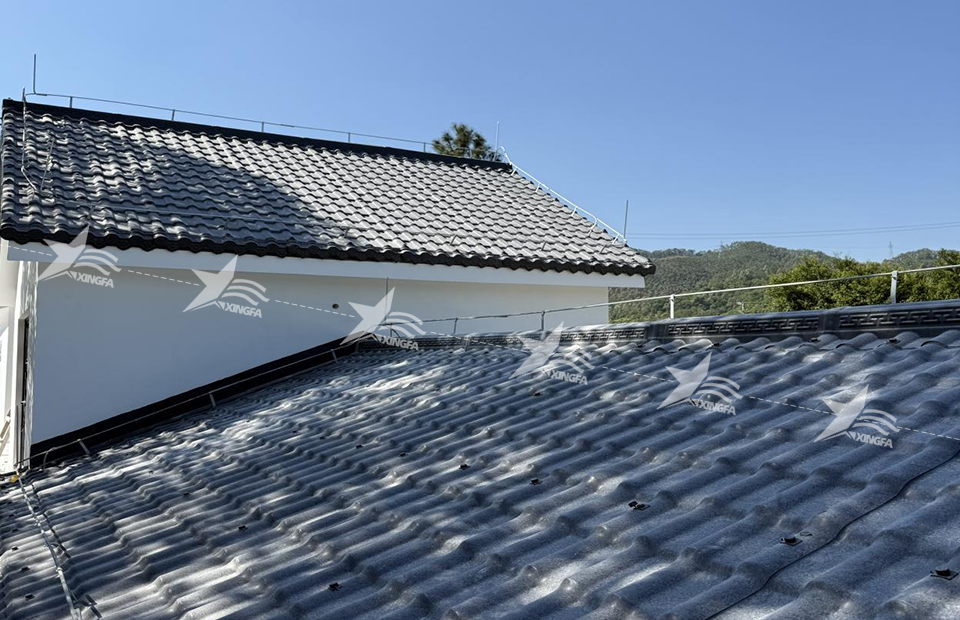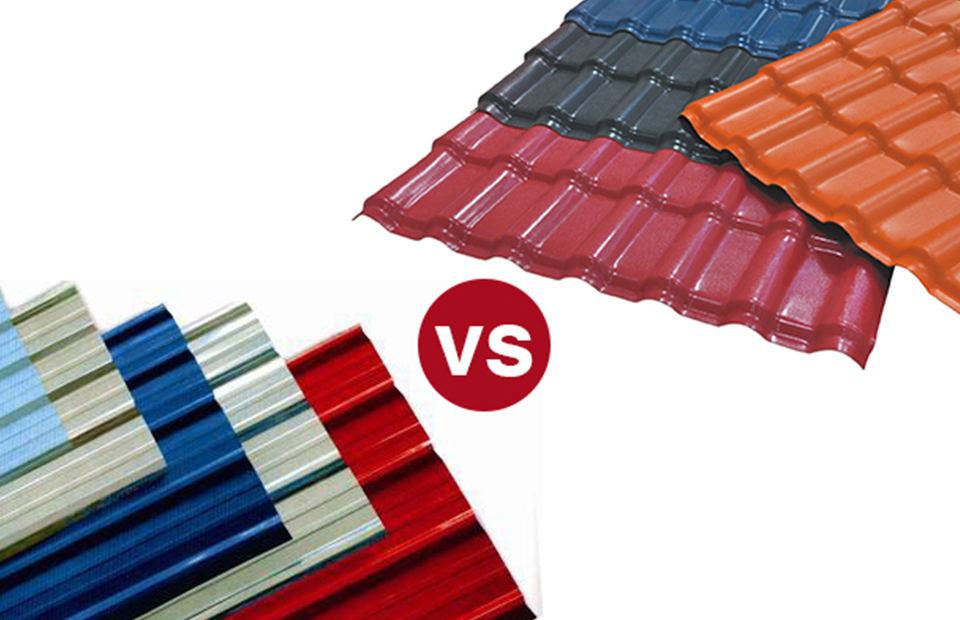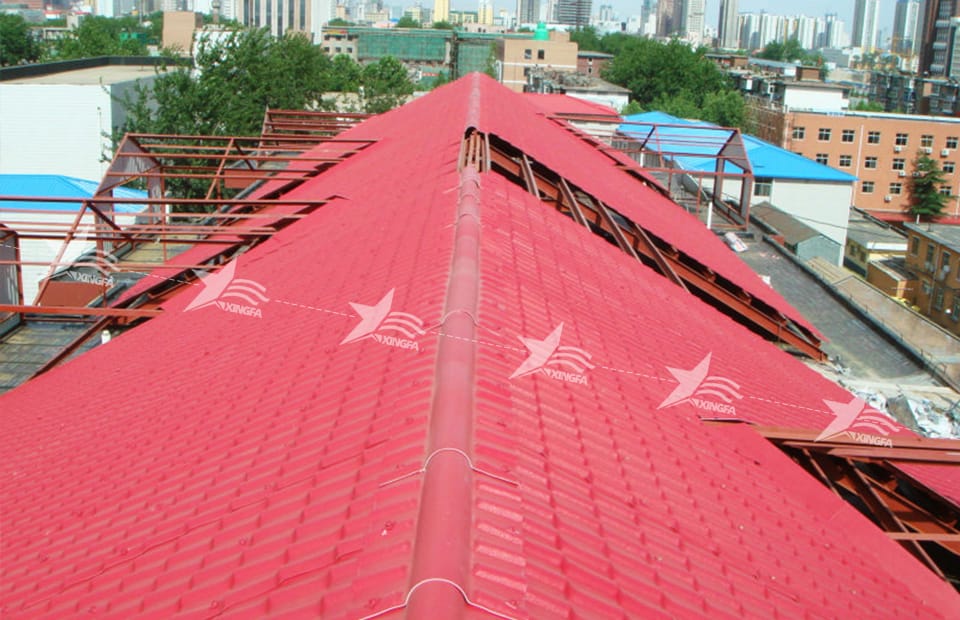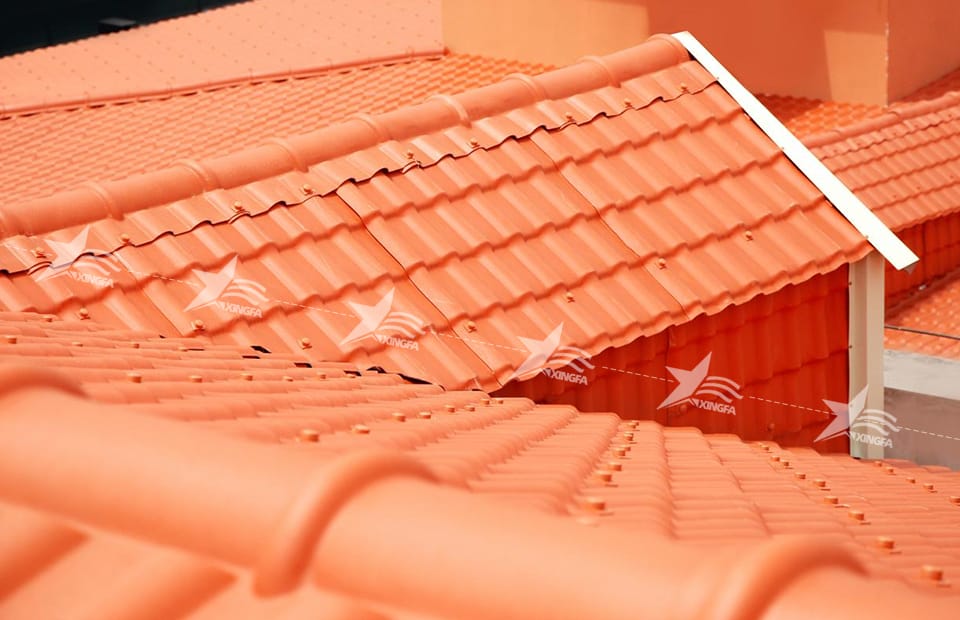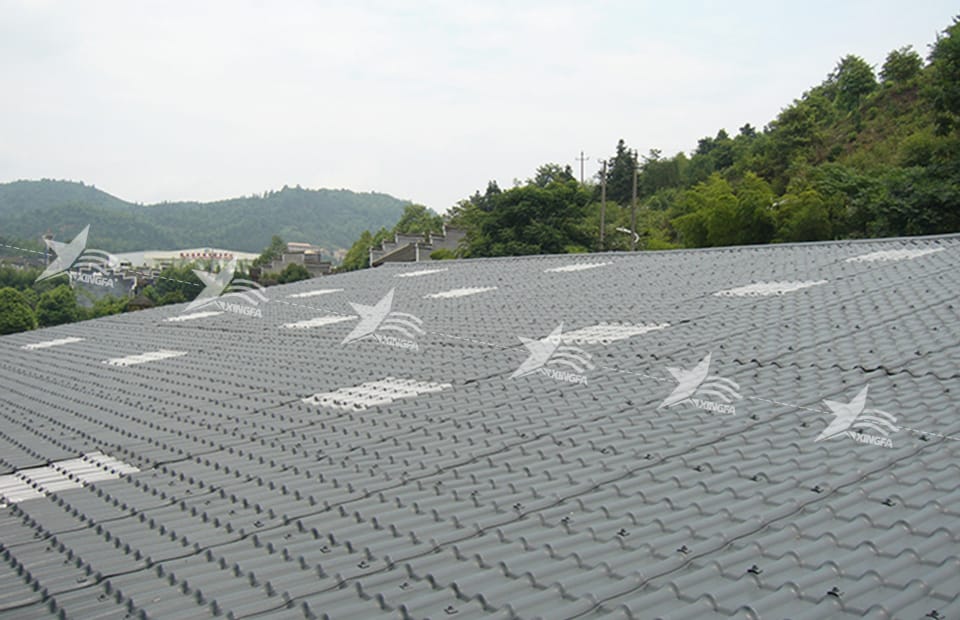In recent years, with the rapid development of rural areas, more and more farmers are opting for modern roofing materials for their homes. Among the various choices, glazed tiles and synthetic resin tiles have garnered significant attention. But which type of tile is better suited for new rural housing?

Glazed Tiles
Glazed tiles, often associated with opulence and grandeur, are traditionally used in temples and luxurious homes to enhance aesthetic appeal. However, they come with several drawbacks:
– **Fragility**: Glazed tiles are prone to cracking and chipping, which can lead to detachment and pose safety risks.
– **Poor Moisture Management**: They struggle to eliminate accumulated indoor moisture, potentially causing damage to the roof structure and health issues for occupants.
– **Heavy Weight**: The substantial weight of glazed tiles adds stress to roof beams and is not ideal for long-distance transportation.
– **Safety Concerns in Icy Conditions**: In regions where ice forms in winter, the smooth surface of glazed tiles can become slippery and dangerous.

Synthetic Resin Tiles
In contrast, synthetic resin tiles, made from ASA (Acrylonitrile Styrene Acrylate) materials, offer numerous advantages:
– **Durability and Longevity**: ASA resin tiles are highly durable, maintaining their vibrant color and integrity over time without fading.
– **Lightweight**: Their lightweight nature reduces the load on the roof structure, thereby lowering construction costs and minimizing risks.
– **High Resilience**: Synthetic resin tiles boast excellent weather resistance and can withstand thermal expansion and contraction, making them suitable for various climates without cracking.
– **Superior Insulation**: They provide better insulation against heat and cold, enhancing energy efficiency.
– **Corrosion Resistance**: These tiles resist corrosion, ensuring longevity in humid or coastal environments.
– **Moisture Barrier**: They effectively prevent water vapor penetration, which enhances the overall waterproofing of the roof and maintains a healthier indoor environment.
Practical Benefits
– **Ease of Installation**: Synthetic resin tiles are easier and quicker to install due to their lighter weight and modular design.
– **Cost-Effectiveness**: Despite their superior properties, synthetic resin tiles are often more cost-effective in the long run due to lower maintenance and repair needs.
– **Versatility**: They are ideal for various permanent buildings and renovation projects, including “flat-to-slope” roof conversions.
Conclusion
Considering these factors, synthetic resin tiles emerge as the superior choice for new rural home construction. Their blend of durability, aesthetic appeal, and practical benefits make them an excellent option for homeowners looking to invest in a long-lasting, low-maintenance roofing solution.

By choosing synthetic resin tiles, rural homeowners can ensure that their roofs not only withstand the elements but also contribute to a safer and more comfortable living environment.



